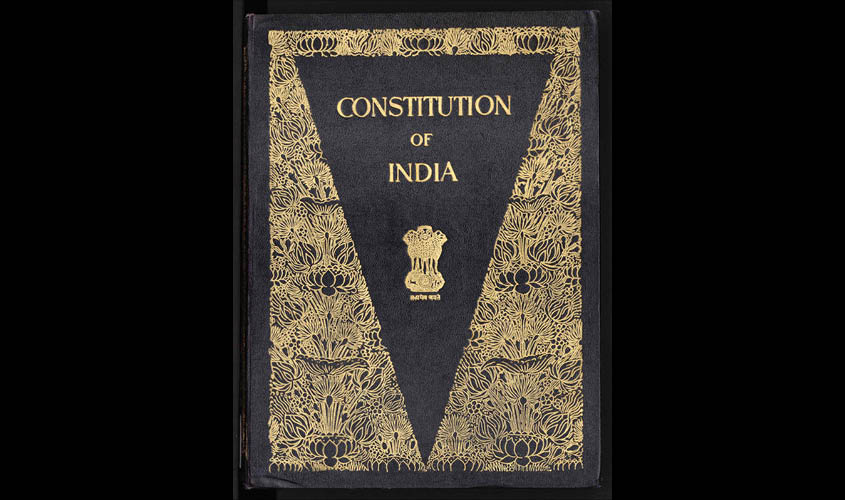A New Zealand river revered by the Maori has been recognised by Parliament as a “legal person”, in a move believed to be the world’s first. The river has been granted the same legal rights as a human being.
The local Maori tribe of Whanganui in the North Island has fought for the recognition of their river—the third-largest in New Zealand—as an ancestor for 140 years. Hundreds of tribal representatives wept with joy when their bid to have their kin awarded legal status as a living entity was made into law.
According to news reports, the reason the locals had taken this approach was because they had always considered the river as their ancestor. They were quoted as saying that they fought to find an approximation in law so that everyone else could understand that treating the river as a living entity, from their perspective, was the right way to approach it as opposed to treating it from the perspective of ownership and management, which had been the traditional model for a century. The new status accorded to the river meant abusing or harming it was equivalent to harming the tribe.
In India, the Ganga river, considered sacred by more than 1 billion Indians, has become the first non-human entity in India to be granted the same legal rights as people. A court in Uttarakhand has ordered that the Ganga and its main tributary, the Yamuna, should be accorded the status of living human entities. The decision, which was welcomed by environmentalists, means that polluting or damaging the rivers will be legally equivalent to harming a person. The judges cited the example of the Whanganui river in this context.
Why are we talking of rivers and their rights? The reason is the recent Supreme Court judgement on Sabarimala, which denied any rights to the Deity. The Travancore covenant signed by Government of India was with Lord Padmanabhaswamy. This was made clear by the then ruler to V.P. Menon and Sardar Patel that he was only acting on the behalf of the Deity as His servant, Padmanabha Dasa.
The rights and privileges of all such rulers including the Ruler of all Rulers, Lord Padmanabhaswamy Deity was protected in our Constitution by the Constituent Assembly, as advised by Sardar Patel in his address to the Constituent Assembly.
The Supreme Court, in the famous Privy Purse judgement in 1971 interpreting the Constitutional guarantees given to rulers held that “The Rulers who were before integration of their States aliens qua the Dominion Government are now citizens.”
Even though the 26th Amendment to the Constitution removed the privileges and rights due to all rulers in an immoral act, the Supreme Court in a 1993 judgement upheld the 26th Amendment of the Constitution, approving the statement of objects of the amendment as “The distinction between the erstwhile Rulers and the citizenry of India has to be put an end to so as to have a common brotherhood.”
Prior to the 26th amendment of the Constitution, only Lord Padmanabhaswamy Deity, who was the ruler of the Travancore State, became Citizen as per the ratio of the Privy Purse judgement, by virtue of the 26th Amendment of the Constitution.
The SC judgement ratio upholding the conversion of Ruler to Citizen of Anantha Padmanabhaswamy under Article 14 of the Constitution is to create a common brotherhood. From this decision, all temple deities should now be considered as citizens, as there cannot be a distinction between one Hindu deity and another in our Constitution under Article 14.
In the Citizenship Act of 1955, Section 2(f) reads as follows: “‘person’ does not include any company or association or body of individuals, whether incorporated or not”.
In Section 2(31) of the Income Tax Act of 1961 “person” was defined including “artificial juridical persons” and the SC held in a 1969 judgement that Hindu deities can be taxed as per this definition.
In view of the above, since Section 2(f) of the Citizenship Act of 1955 did not bar Hindu deities as juristic persons from the definition of the term “person”, clearly there is no bar for the Central government to register Hindu deities as citizens under Section 5(a).
In view of the fact that the Central government granted citizenship to Lord Padmanabhaswamy Deity as Ruler when the Travancore kingdom was integrated, as held by the SC in its 1971 judgement, and due to the 26th Amendment of the Constitution and the ratio of the SC judgement of 1993 upholding the same under Article 14, it is now duty bound to register all Hindu deities as citizens under Section 5(a) of the Citizenship Act.
The Union Government should apply the same rule as that of the Rivers Ganga and Yamuna and register all the temple deities as citizens so that many issues can get resolved with this one stroke.
C.S. Rangarajan belongs to the family of hereditary Archaka cum trustees of the Sri Chilkur Balaji Venkateswara Swamy temple of Telangana. He has been assisting his father Dr M.V. Soundara Rajan in running the Temples Protection Movement from Chilkur Balaji temple.

